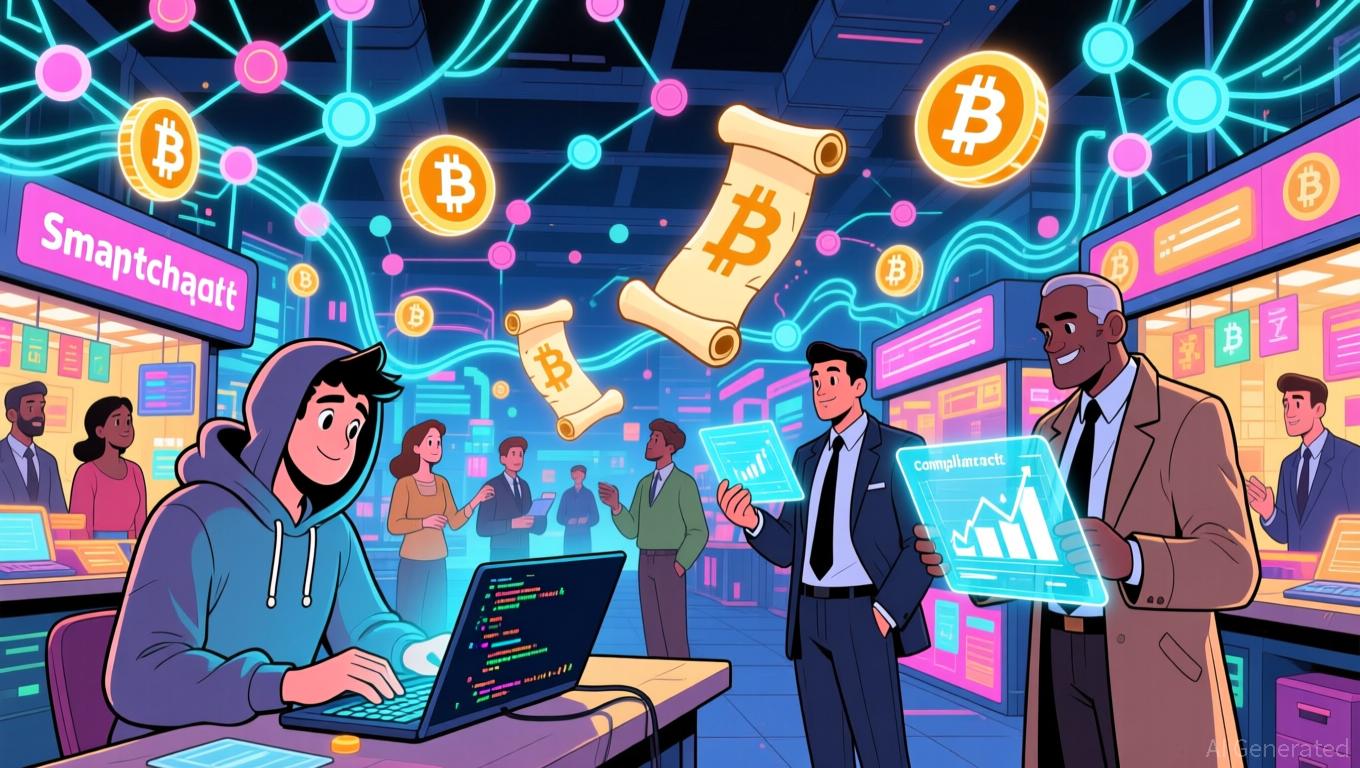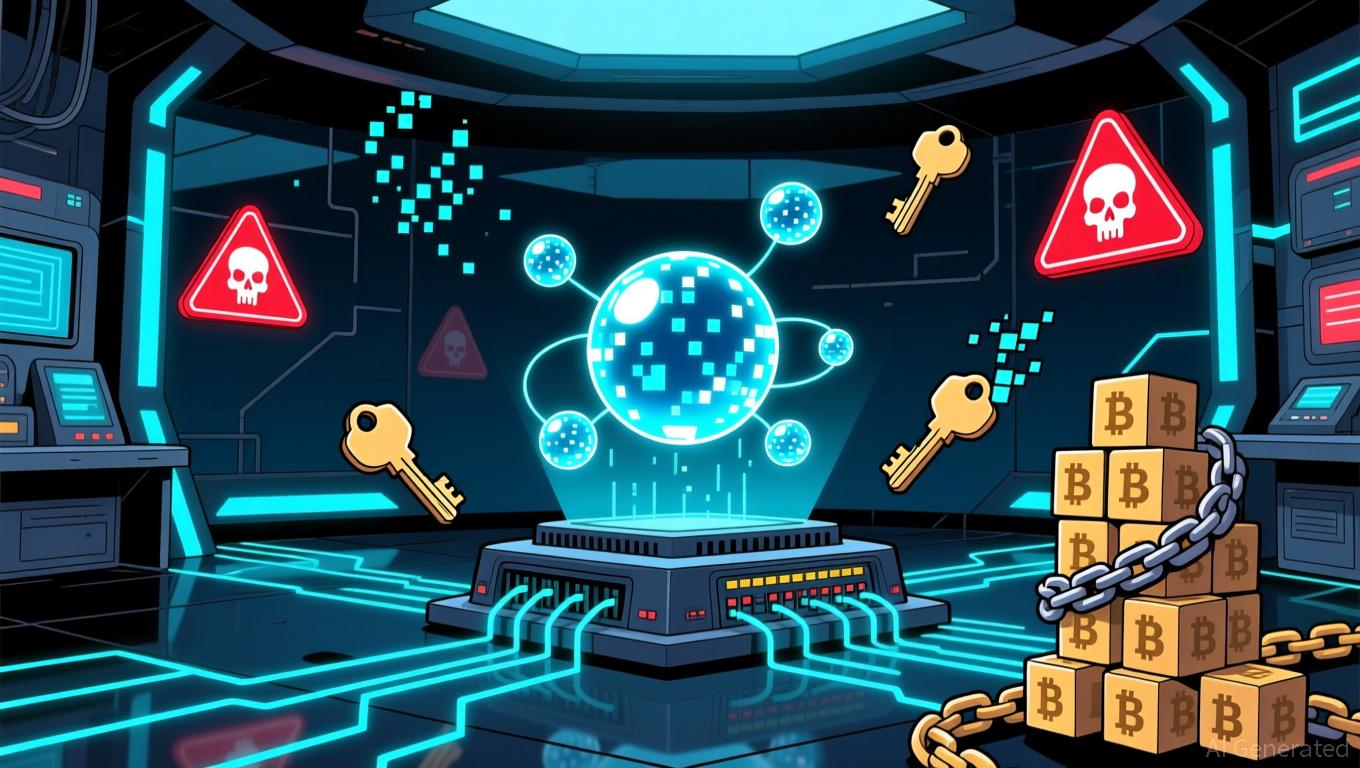Vitalik Buterin Backs ZKsync: Driving Ethereum's Layer 2 Transformation and Boosting Altcoin Growth
- Vitalik Buterin endorses ZKsync's Atlas upgrade, signaling a strategic shift in Ethereum's Layer 2 scaling. - The upgrade enables 15,000 TPS, near-zero fees, and boosts ZK token price by 50% post-announcement. - Institutional partnerships with Deutsche Bank and Citi highlight ZKsync's privacy-driven appeal in financial services . - ZK ecosystem grows with $3.5B TVL, driven by ZK rollups and hybrid TradFi-DeFi systems projected to reach $90B by 2031. - Regulatory risks and gas volatility persist, but ZK t
ZKsync's Innovations and Influence on the Market
With the introduction of the Atlas upgrade in 2025, ZKsync has transformed what is possible for Ethereum's Layer 2. As highlighted by Bitget,
Buterin’s public support has
Institutional Uptake and Competitive Landscape
ZKsync offers distinct advantages that are especially attractive to institutional players.
Nonetheless, ZKsync contends with strong competition from other Layer 2 platforms such as
Wider Effects on the ZK Sector and Ethereum’s Scaling Path
The ZK sector is witnessing a notable increase in institutional capital.
Obstacles and Potential Risks
Despite the positive outlook, several challenges remain.
Conclusion: A Strategic Crossroads for Investors
Vitalik Buterin’s backing of ZKsync is more than just a technical endorsement—it sends a strategic message to the investment community. The Atlas and Fusaka upgrades, together with growing institutional involvement and a flourishing ZK ecosystem, make a strong argument for reassessing investments in ZK-driven projects. While uncertainties around regulation and gas fees persist, the long-term promise of ZK technology to transform Ethereum’s scalability and institutional finance is clear. For those looking to benefit from the next wave of blockchain progress, the ZKsync ecosystem and its broader significance deserve close attention.
Disclaimer: The content of this article solely reflects the author's opinion and does not represent the platform in any capacity. This article is not intended to serve as a reference for making investment decisions.
You may also like
CFTC Faces DeFi Turning Point: Selig Advocates for Regulation that Encourages Innovation
- Michael Selig, Trump's CFTC nominee, defended innovation-friendly DeFi regulation during a Senate hearing, warning rigid rules could drive activity offshore. - CFTC faces leadership vacuum with only acting Chair Caroline Pham, raising bipartisan concerns over regulatory clarity and legal risks from unconfirmed vacancies. - Selig advocated tailored on-chain application regulation, aligning with Senate Republicans who argue CFTC alone should oversee digital commodities trading. - Congressional repeal of IR

XRP News Today: XRP ETFs Fail to Halt Sell-Off; $1.55 Pullback on the Horizon
- XRP faces 25% correction risk to $1.55 despite first U.S. spot ETFs (XRPC/EZRP) failing to stabilize prices at $2.22. - Weak institutional demand, profit-taking by long-term holders, and fragile on-chain metrics drive bearish momentum. - Whale activity ($645M in transfers) and underwater token supply (41.5% at loss) amplify downward pressure post-ETF launch. - Technical indicators show XRP trading below key averages, with critical support at $2.07–$2.10 at risk of breakdown. - Ripple's ecosystem growth c

Bitcoin News Update: Quantum Threat Approaches—Cryptocurrency’s Urgent Quest for Survival

Adversaries Reportedly Received Voting Rights in Crypto Company Supported by Trump
- U.S. Senators Warren and Reed demand federal investigation into Trump-linked crypto firm WLF over alleged sales to sanctioned entities including North Korea, Russia, and Iran. - WLF denies claims, asserting "rigorous AML/KYC checks," but faces scrutiny for granting adversaries voting rights over its governance and Trump family's $3B stake in tokens. - Critics highlight conflicts of interest as Trump family members lead WLF while prioritizing token sales over compliance, alongside expansion plans involvin
